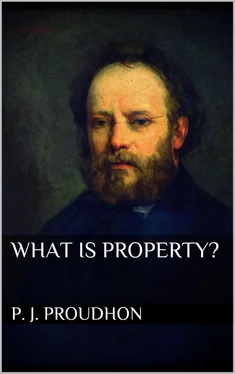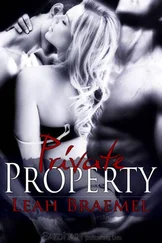Proudhon lodged an appeal; he wrote a memoir which the law of 1819, in the absence of which he would have been liable to a new prosecution, gave him the power to publish previous to the hearing. Having decided to make use of the means which the law permitted, he urged in vain the printers who were prosecuted with him to lend him their aid. He then demanded of Attorney-General Chaix d'Est Ange a statement to the effect that the twenty-third article of the law of the 17th of May, 1819, allows a written defence, and that a printer runs no risk in printing it. The attorney-general flatly refused. Proudhon then started for Belgium, where he printed his defence, which could not, of course, cross the French frontier. This memoir is entitled to rank with the best of Beaumarchais's; it is entitled: "Justice prosecuted by the Church; An Appeal from the Sentence passed upon P. J. Proudhon by the Police Magistrate of the Seine, on the 2d of June, 1858." A very close discussion of the grounds of the judgment of the sixth chamber, it was at the same time an excellent resume of his great work.
Once in Belgium, Proudhon did not fail to remain there. In 1859, after the general amnesty which followed the Italian war, he at first thought himself included in it. But the imperial government, consulted by his friends, notified him that, in its opinion, and in spite of the contrary advice of M. Faustin Helie, his condemnation was not of a political character. Proudhon, thus classed by the government with the authors of immoral works, thought it beneath his dignity to protest, and waited patiently for the advent of 1863 to allow him to return to France.
In Belgium, where he was not slow in forming new friendships, he published in 1859-60, in separate parts, a new edition of his great work on "Justice." Each number contained, in addition to the original text carefully reviewed and corrected, numerous explanatory notes and some "Tidings of the Revolution." In these tidings, which form a sort of review of the progress of ideas in Europe, Proudhon sorrowfully asserts that, after having for a long time marched at the head of the progressive nations, France has become, without appearing to suspect it, the most retrogressive of nations; and he considers her more than once as seriously threatened with moral death.
The Italian war led him to write a new work, which he published in 1861, entitled "War and Peace." This work, in which, running counter to a multitude of ideas accepted until then without examination, he pronounced for the first time against the restoration of an aristocratic and priestly Poland, and against the establishment of a unitary government in Italy, created for him a multitude of enemies. Most of his friends, disconcerted by his categorical affirmation of a right of force, notified him that they decidedly disapproved of his new publication. "You see," triumphantly cried those whom he had always combated, "this man is only a sophist."
Led by his previous studies to test every thing by the question of right, Proudhon asks, in his "War and Peace," whether there is a real right of which war is the vindication, and victory the demonstration. This right, which he roughly calls the right of the strongest or the right of force, and which is, after all, only the right of the most worthy to the preference in certain definite cases, exists, says Proudhon, independently of war. It cannot be legitimately vindicated except where necessity clearly demands the subordination of one will to another, and within the limits in which it exists; that is, without ever involving the enslavement of one by the other. Among nations, the right of the majority, which is only a corollary of the right of force, is as unacceptable as universal monarchy. Hence, until equilibrium is established and recognized between States or national forces, there must be war. War, says Proudhon, is not always necessary to determine which side is the strongest; and he has no trouble in proving this by examples drawn from the family, the workshop, and elsewhere. Passing then to the study of war, he proves that it by no means corresponds in practice to that which it ought to be according to his theory of the right of force. The systematic horrors of war naturally lead him to seek a cause for it other than the vindication of this right; and then only does the economist take it upon himself to denounce this cause to those who, like himself, want peace. The necessity of finding abroad a compensation for the misery resulting in every nation from the absence of economical equilibrium, is, according to Proudhon, the ever real, though ever concealed, cause of war. The pages devoted to this demonstration and to his theory of poverty, which he clearly distinguishes from misery and pauperism, shed entirely new light upon the philosophy of history. As for the author's conclusion, it is a very simple one. Since the treaty of Westphalia, and especially since the treaties of 1815, equilibrium has been the international law of Europe. It remains now, not to destroy it, but, while maintaining it, to labor peacefully, in every nation protected by it, for the equilibrium of economical forces. The last line of the book, evidently written to check imperial ambition, is: "Humanity wants no more war."
In 1861, after Garibaldi's expedition and the battle of Castelfidardo, Proudhon immediately saw that the establishment of Italian unity would be a severe blow to European equilibrium. It was chiefly in order to maintain this equilibrium that he pronounced so energetically in favor of Italian federation, even though it should be at first only a federation of monarchs. In vain was it objected that, in being established by France, Italian unity would break European equilibrium in our favor. Proudhon, appealing to history, showed that every State which breaks the equilibrium in its own favor only causes the other States to combine against it, and thereby diminishes its influence and power. He added that, nations being essentially selfish, Italy would not fail, when opportunity offered, to place her interest above her gratitude.
To maintain European equilibrium by diminishing great States and multiplying small ones; to unite the latter in organized federations, not for attack, but for defence; and with these federations, which, if they were not republican already, would quickly become so, to hold in check the great military monarchies,—such, in the beginning of 1861, was the political programme of Proudhon.
The object of the federations, he said, will be to guarantee, as far as possible, the beneficent reign of peace; and they will have the further effect of securing in every nation the triumph of liberty over despotism. Where the largest unitary State is, there liberty is in the greatest danger; further, if this State be democratic, despotism without the counterpoise of majorities is to be feared. With the federation, it is not so. The universal suffrage of the federal State is checked by the universal suffrage of the federated States; and the latter is offset in its turn by PROPERTY, the stronghold of liberty, which it tends, not to destroy, but to balance with the institutions of MUTUALISM.
All these ideas, and many others which were only hinted at in his work on "War and Peace," were developed by Proudhon in his subsequent publications, one of which has for its motto, "Reforms always, Utopias never." The thinker had evidently finished his evolution.
The Council of State of the canton of Vaud having offered prizes for essays on the question of taxation, previously discussed at a congress held at Lausanne, Proudhon entered the ranks and carried off the first prize. His memoir was published in 1861 under the title of "The Theory of Taxation."
About the same time, he wrote at Brussels, in "L'Office de Publicite," some remarkable articles on the question of literary property, which was discussed at a congress held in Belgium, These articles must not be confounded with "Literary Majorats," a more complete work on the same subject, which was published in 1863, soon after his return to France.
Читать дальше












